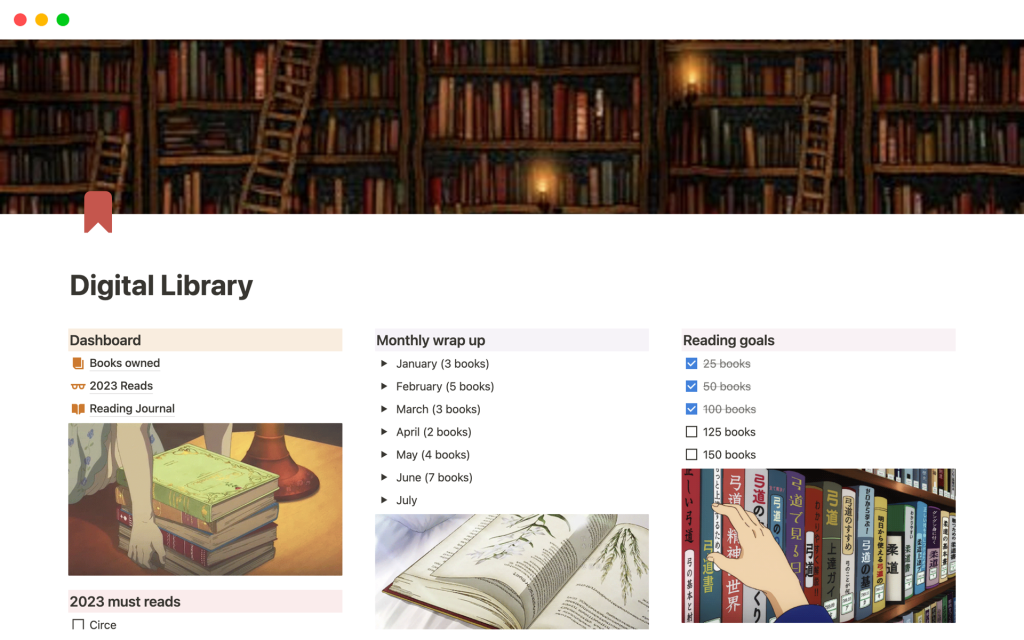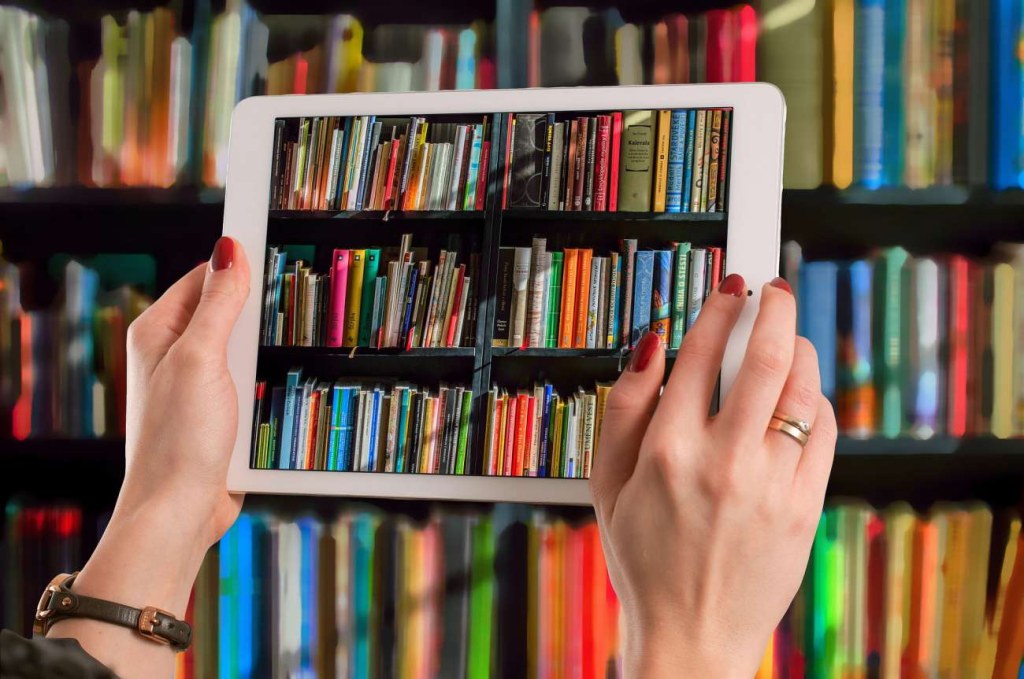Digital Library for Books: Revolutionizing Access to Knowledge
Introduction
Hello Readers,
Welcome to an exciting digital era where knowledge is readily available at your fingertips. In this article, we will delve into the world of digital libraries for books, exploring their significance, advantages, and how they have transformed the way we access and consume knowledge.

Image Source: ctfassets.net
Today, the internet has become an integral part of our lives, and with it, digital libraries have emerged as a valuable resource for book enthusiasts, students, researchers, and anyone seeking information. These digital libraries provide a vast collection of books, spanning various genres, topics, and time periods, and are accessible through computers, smartphones, and e-readers.
Let us embark on this journey and discover the wonders of digital libraries for books.
What is a Digital Library for Books? 📚
At its core, a digital library for books is an online repository that allows users to access and read books in digital formats. It provides a platform for publishers, authors, and users to interact and exchange knowledge without the limitations of physical boundaries.

Image Source: london.ac.uk
These libraries offer a wide range of works, including classics, contemporary literature, textbooks, research papers, and more. They often feature advanced search capabilities, categorization, and recommendations to enhance the user experience.
With the advancement of technology, digital libraries have become more interactive, providing features such as annotations, highlighting, and bookmarking, which were previously exclusive to physical books.
Who Can Benefit from Digital Libraries for Books? 📖
The beauty of digital libraries for books lies in their accessibility and inclusivity. They cater to a diverse audience, including:
Students: Digital libraries offer easy access to textbooks, reference materials, and educational resources, making learning more engaging and convenient.
Researchers: Scholars can explore a vast collection of books, journals, and research papers from various fields, facilitating their study and expanding their knowledge.
Book Enthusiasts: Digital libraries offer a treasure trove of books, allowing avid readers to explore different genres, discover new authors, and indulge in their passion for reading.
Professionals: Digital libraries provide access to industry-specific books and resources, aiding professionals in their continuous learning and career development.
Regardless of age, profession, or location, anyone with an internet connection can benefit from the wealth of knowledge offered by digital libraries.
When Did Digital Libraries for Books Emerge? 📅
The concept of digital libraries dates back to the 1960s, with the development of computer networks and information retrieval systems. However, it was not until the 1990s and the advent of the World Wide Web that digital libraries gained significant traction.
As internet connectivity became more widespread and digital formats gained popularity, libraries and organizations began digitizing books, creating online platforms to make them accessible to a broader audience.
Since then, digital libraries for books have continued to evolve, embracing technological advancements to enhance user experience, storage capacity, and the range of available books.
Where Can You Find Digital Libraries for Books? 🌍
Digital libraries for books are available worldwide, transcending geographical borders and time zones. Some prominent platforms include:
Project Gutenberg: Known as the oldest digital library, Project Gutenberg offers over 60,000 free e-books, including literary classics.
Google Books: With millions of books in its database, Google Books allows users to search and preview books, access full texts, and even purchase or borrow digital copies.
Open Library: Open Library provides free access to millions of books, including rare and out-of-print titles, fostering a collaborative and open approach to knowledge sharing.
Amazon Kindle: As one of the most popular e-reading platforms, Amazon Kindle offers a vast collection of e-books for purchase or rental, compatible with various devices.
These are just a few examples of the many digital libraries available, each catering to different preferences, genres, and user needs.
Why Should You Embrace Digital Libraries for Books? ❓
The advantages of digital libraries for books are numerous, revolutionizing the way we access and interact with knowledge:
Unlimited Access: Digital libraries remove the limitations of physical space, allowing users to access an extensive collection of books from anywhere, anytime.
Convenience: With digital libraries, there is no need to visit physical libraries or carry around heavy books. All you need is a device and an internet connection.
Searchability: Digital libraries offer advanced search capabilities, enabling users to find specific information within seconds, saving time and effort.
Annotation and Bookmarking: Many digital libraries allow users to highlight, annotate, and bookmark pages, facilitating note-taking and revisiting information.
Environmentally Friendly: By opting for digital formats, we reduce paper consumption, contributing to a more sustainable future.
However, it is essential to acknowledge that digital libraries also have some disadvantages, including:
Dependence on Technology: Access to digital libraries relies on internet connectivity and compatible devices, which may pose challenges in areas with limited resources.
Copyright Restrictions: Some books may not be available in digital formats due to copyright limitations, limiting access to certain works.
Despite these drawbacks, the benefits of digital libraries outweigh the disadvantages, making them a valuable and indispensable resource in today’s digital age.
How Can You Make the Most of Digital Libraries for Books? ❓
To fully leverage the potential of digital libraries for books, consider these tips:
Explore Different Platforms: Each digital library offers a unique collection and user experience. Experiment with different platforms to find the one that suits your preferences.
Utilize Advanced Search Features: Familiarize yourself with the search capabilities of digital libraries. Utilize filters, keywords, and metadata to narrow down your search and find the most relevant books.
Engage in Online Communities: Join online forums, book clubs, and discussion groups related to your areas of interest. Connect with like-minded individuals, share recommendations, and expand your literary horizons.
Support Authors and Publishers: When possible, consider purchasing e-books or supporting authors and publishers directly. This helps sustain the ecosystem of digital publishing and encourages the creation of more quality content.
Embrace Lifelong Learning: Digital libraries provide endless opportunities for learning and growth. Set aside dedicated time for reading and exploration, allowing yourself to immerse in the world of knowledge.
Frequently Asked Questions (FAQs)
1. Are digital libraries for books free?
Answer: It depends on the digital library. Some offer free access to certain books, while others require membership or charge for premium content.
2. Can I read digital library books offline?
Answer: Some digital libraries allow users to download books for offline reading. However, this feature may vary across different platforms.
3. Are digital libraries suitable for academic research?
Answer: Yes, digital libraries provide a wealth of resources for academic research, including journals, articles, and scholarly texts.
4. Can I access digital libraries on my smartphone?
Answer: Many digital libraries have mobile applications, making it possible to access and read books on your smartphone or tablet.
5. Can I borrow books from digital libraries?
Answer: Some digital libraries offer borrowing features, allowing users to borrow e-books for a limited period, similar to physical libraries.
Conclusion: Embrace the Digital Reading Revolution 🚀
As we conclude our exploration of digital libraries for books, it is evident that they have revolutionized the way we access and consume knowledge. These virtual repositories have democratized information, providing equal opportunities for all to satisfy their thirst for knowledge.
With their vast collections, convenience, and interactive features, digital libraries offer a gateway to explore new worlds, challenge our perspectives, and ignite our imaginations. Embrace this digital reading revolution, and let the words on the screen transport you to limitless possibilities.
Final Remarks
Friends, in the age where information is abundant, it is crucial to navigate the digital landscape responsibly. While digital libraries for books offer numerous advantages, we must also be mindful of the potential pitfalls and limitations.
Always prioritize the verification of information, critically evaluate sources, and respect copyright laws. Let us cherish the knowledge made accessible through digital libraries and utilize it as a tool for personal growth, learning, and shaping a brighter future.